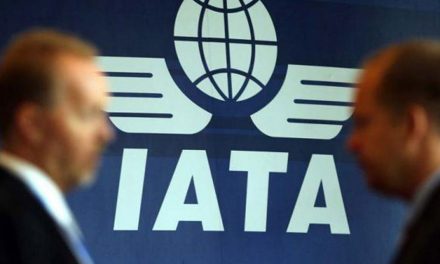
IATA proposes agenda for strengthening aviation in Russia
The International Air Transport Association (IATA) has proposed an agenda to strengthen aviation in Russia, based on the further implementation of global standards and best practices. Speaking at the first IATA Aviation Day Russia where IATA signed a cooperation agreement with the Russian Association of Air Transport Operators, IATA’s Director General and CEO Tony Tyler said: “A healthy aviation sector is vital for Russia—connecting the communities across the country’s vast land mass and proving vital trade and cultural links globally. These are difficult times for Russian aviation and there is no silver bullet solution to invigorating the sector. However a partnership agenda that extends the positive impact that global standards are having in safety and distribution will strengthen the foundations of the sector for success.”
Tyler added: “IATA is a long-time partner of Russian aviation and this has created significant value. The IATA Operational Safety Audit (IOSA) aligns some 400 airlines—including our 11 Russian members and five other Russian airlines—with the global benchmark for operational safety. And the Billing and Settlement Plan has helped to link the country’s consumers to the world with global best practices for ticket distribution. Today we are deepening our partnership with Russia with a commitment to cooperate even more broadly with the Russian Association of Air Transport Operators.”
In a statement sent to Post&Parcel today (2 March), IATA said that it had proposed the following agenda for the Russian government:
Costs:
- Continue to recognize the benefits of lowering and eventually removing VAT for domestic air transport.
- Ensure that airport charges and infrastructure developments are agreed by airlines and the airport operators with a focus on cost-efficiency and aligned with the global principles agreed by governments through the International Civil Aviation Organization (ICAO). These include transparency, meaningful consultation and non-discrimination.
Smarter Regulation:
- Adopt the Montreal Convention 1999 (MC99) to provide global standard risk coverage for passengers and shippers and to facilitate e-cargo implementation.
- Ratify the Montreal Protocol 2014 of the Tokyo Convention to close a gap in international law with respect to the growing problem of disruptive passengers.
- Accelerate the adoption of the global standard for special and atmospheric referencing—QNH and WGS 84—to deliver even greater safety and cost benefits as Russia modernizes its air traffic management system.
- Join the Smart Security initiative of IATA and Airports Council International to improve airport security and reduce passenger hassle by combining new technology with regulatory best practices.
Environment:
- Support a global agreement through ICAO on a Market-Based Measure to manage aviation’s carbon footprint. The air transport industry is united in its call for a mandatory global carbon offset scheme.










